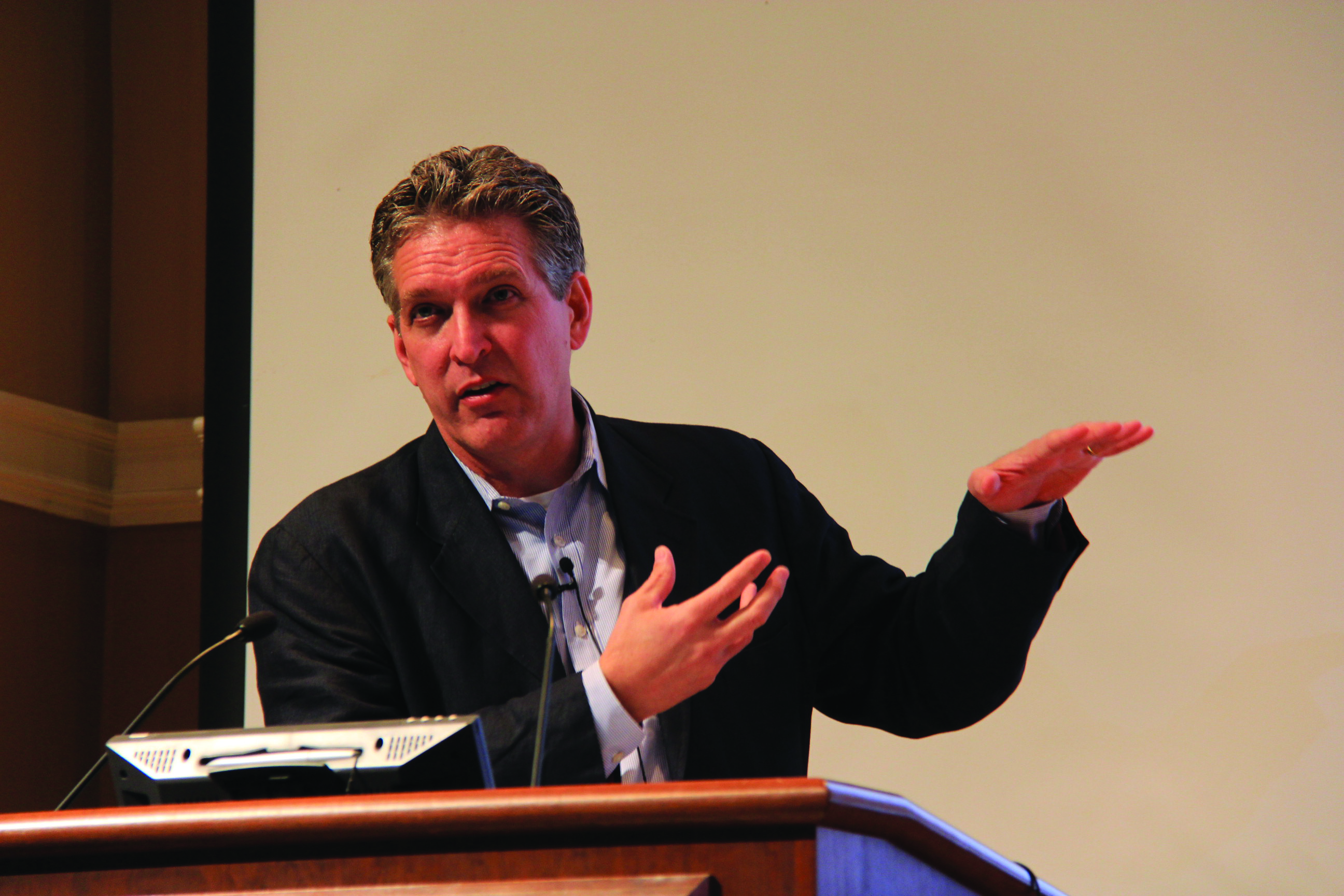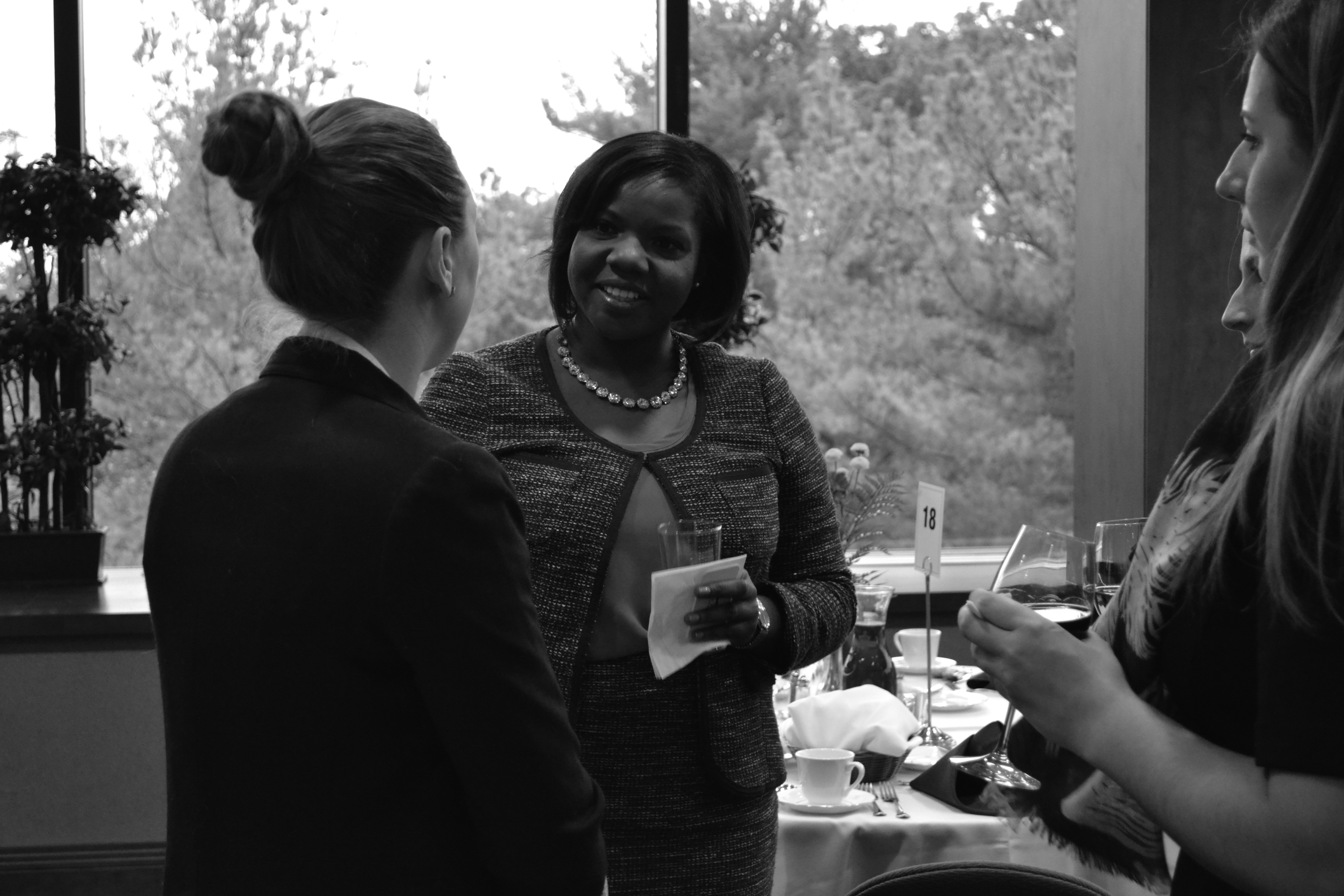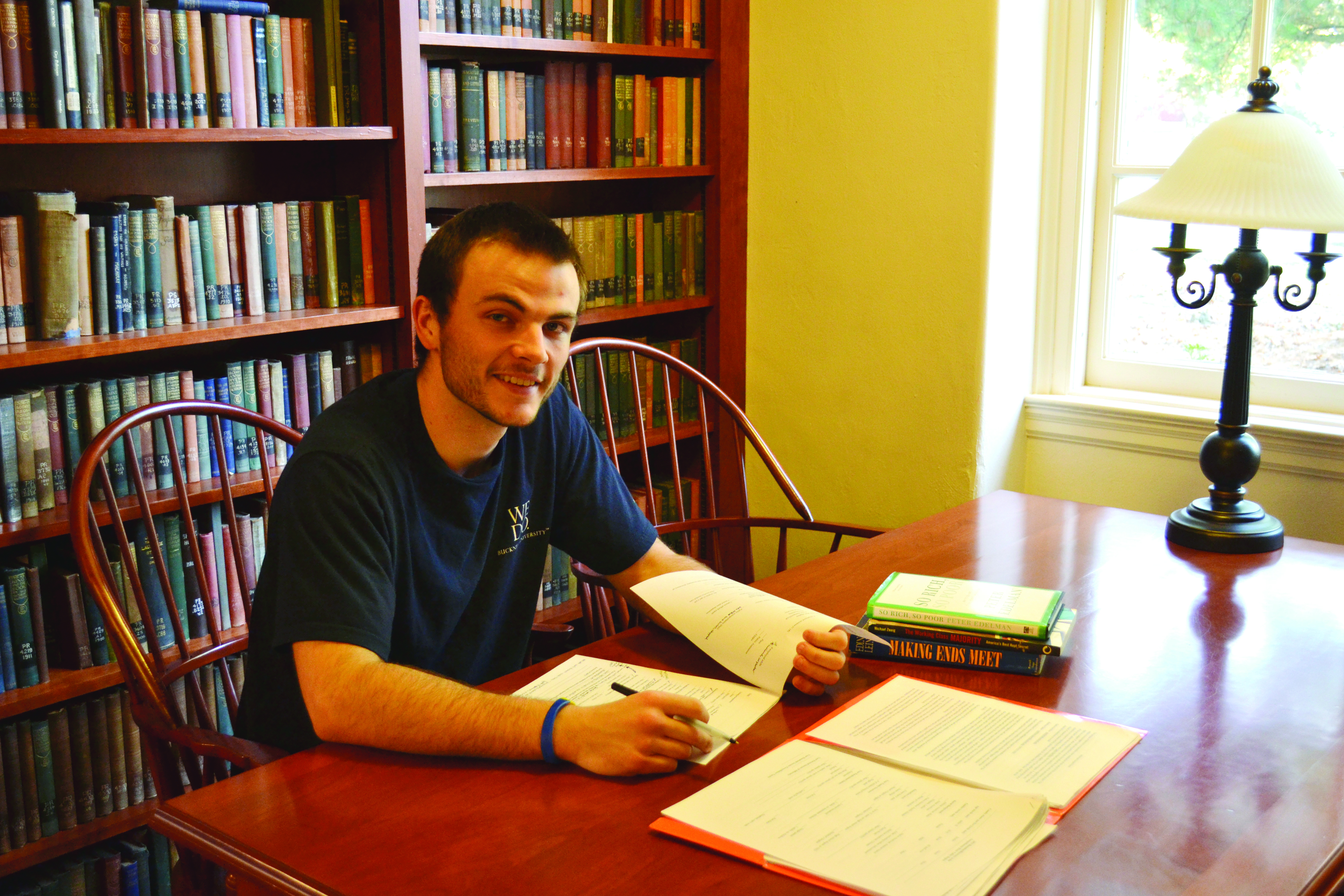Ben Kaufman
Editor-in-Chief
A New York Times best-selling author, and the writer of this year’s first-year reading assignment, said that time away from technology should be essential in modern life.
“In today’s world, nobody is off the grid,” said William Powers, author of “Hamlet’s Blackberry: Building a Good Life in the Digital Age.”
Every weekend for five years, Powers and his family would hold a “Digital Sabbath,” during which they would step away from all forms of technology.
Powers, who spoke in Trout Auditorium on Oct. 8, said that stepping away from technology gives you time to think, and therefore allows you to bring more to the table.
“The more you step away from the digital life, the more you can contribute,” Powers said.
Powers also said that he tries to promote nonconformity to everyone around him. Individuals should find ways to avoid conformity in their lives, both in the technology sphere and in general, as a way to find who you truly are, Powers said.
“Make your story original,” Powers said. “Help us stay human.”
Powers graduated from Harvard University with a degree in U.S. history and literature, and later studied for a year at the University of Madrid. Powers has worked as a researcher for Bob Woodward and later as a staff writer for the Washington Post. He now works as a media columnist and speaker.
Power’s book was used as this year’s first-year Common Reading, an assignment that was given to all incoming first-years for the previous four years.
“One of the goals of the Common Reading is to provide a topic and point of reference that is universal to all first-year students, allowing each individual to express his or her thoughts about a shared idea,” said Beth Bouchard, director of New Student Orientation and Student Leadership Programs. “For the last three years, first-year students have met during New Student Orientation to discuss various aspects of the book with a faculty or staff and peer facilitator.”
“I believe that Powers was able to get the audience to think about the relationship that we all have with our electronic devices without suggesting we completely remove ourselves from the digital world,” Jessica Maguire ’14 of the First-Year Common Reading Committee said.


